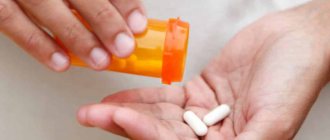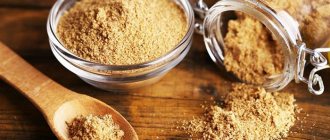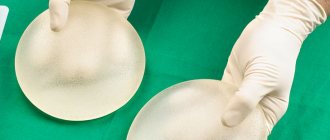It's no secret that alcohol is often chosen as an assistant during postpartum depression, and many mothers are not stopped by the fact that they are breastfeeding. Champagne should not be consumed in large doses while breastfeeding, especially in the first six months. A large amount of alcohol will not magically relieve depression, but will only provide restless sleep for mother and baby and morning headaches.
Is it possible to drink champagne while breastfeeding?
Alcohol immediately passes into breast milk through the blood. As a percentage, 10th of what was drunk is consumed. The child will receive the maximum dose if fed 15 minutes after drinking champagne. Other alcohol reaches its maximum concentration after an average of 45 minutes.
The procedure for cleansing the body of the standard occurs differently for each person. With a small mother’s weight, 60-65 kilograms, this will happen in 3 hours. If we talk about stronger drinks, they are eliminated from the body much longer. Minimum 12-14 hours.
We can conclude that a nursing mother can afford a glass of sparkling wine, provided that the baby’s next feeding occurs no earlier than 3 hours later and the dose of the drink does not exceed 100 grams.
Impact on mom
No expert would recommend drinking champagne to a nursing mother, even in small dosages. This is due to the fact that “measure” is a flexible concept. In addition, it is difficult to judge the quality of the drink, even when buying alcohol in a company store. Let's determine the main effect of champagne on a woman with breastfeeding:
- The onset of euphoria and relaxation.
- A quick change of mood after the effect of the drink wears off.
- Irritability appears and the desire to drink more.
- Metabolism is disrupted.
- Pulse and heart rate increase.
- There is a lack of oxygen.
- Alcohol impairs lactation.
If the use of champagne becomes part of the system, it will negatively affect not only the baby, but also the health of the mother. Internal organs suffer, and the woman’s psychological state is disrupted.
Impact on the child
When breastfeeding a baby, champagne has an increased effect on the following factors:
- Negatively affects brain activity and psychological state.
- It affects the heart.
- Causes sleep disturbance.
- Provokes weakness and drowsiness.
- Increases colic in the intestines.
- Provokes inflammation of internal organs.
- Makes breathing difficult.
- There is a delay in the growth and overall development of the child.
- Affects the cardiovascular system.
- Promotes stomach upset.
- Provokes allergic reactions.
Even if the standard is completely removed from the mother’s body, consumption may change the taste of milk, and the child will refuse milk.
Alternative Research
Relatively recently, the famous American pediatrician Jack Newman published his own study in which he proved that the taboo on alcohol for nursing mothers is unnecessary and their rare consumption of alcoholic beverages in reasonable doses will not harm the baby.
Of course, subject to certain safety rules. This doctor described in detail what happens in the mother's body after a woman drinks a glass of a drink containing alcohol.
- Alcohol remains in the stomach for about 20 minutes from the moment of consumption.
- For about another 10 minutes, the process of absorption of alcohol by the intestines occurs.
- Alcohol enters the bloodstream within 30-60 minutes after drinking the drink exclusively and after 60-90 minutes if the drinks were consumed with food. Champagne goes through the first two stages much faster. It enters the blood within 10 minutes after consumption. At the same time that alcohol is absorbed into the blood, it also passes into breast milk. It is believed that approximately 10% of the alcohol consumed will pass into mother's milk.
- The rate at which alcohol is eliminated from the body largely depends on the individual characteristics of the mother’s body. It is generally accepted that on average 10 ml of ethanol is excreted from the body per hour. That is, the alcohol contained in one glass of red table wine will be eliminated from the body of an average woman weighing 55 kg in 2-3 hours. The stronger the drinks consumed, the more time it will take to neutralize the alcohol. Therefore, a shot of vodka or cognac will take approximately 13-15 hours. As blood alcohol levels drop, it is also excreted from breast milk.
Read also:
The type of soy sauce determines whether it can be used during breastfeeding
Dr. Jack Newman says it's okay for a woman to drink alcohol occasionally as long as she doesn't breastfeed or express breast milk until the alcohol is completely out of her system.
Pediatricians' opinions
Experts can allow champagne in small doses only 6 months after the birth of the child, provided that the baby is healthy and developing normally. It is recommended to express milk before drinking alcohol, and thus prevent the standard from getting into the milk.
This drink is absorbed within half an hour. Due to the fact that it is effervescent, intoxication occurs quickly. With small doses, the baby will not be harmed 2-3 hours after taking champagne. Therefore, feeding is allowed after 3 hours, not earlier. But this is only an approximate calculation, because the elimination of alcohol depends on the weight, height of the woman and the strength of the drink.
Under no circumstances drink alcohol on an empty stomach and do not exceed a dose of 50 ml for the first dose. Further, you are allowed to drink up to 150 ml, no more than once every 10 days, provided that the drink is of good quality.
How long does it take for alcohol to be eliminated?
After the birth of a child, the question arises: does alcohol affect breast milk? Thus, ethanol has the ability to enter the baby’s body, which undoubtedly entails negative consequences. Besides:
- Ethanol has a detrimental effect on the cardiovascular system of infants.
- Leads to changes in the baby's nervous system. After feeding, he will quickly fall asleep, but his sleep will be restless.
- In addition, if the mother abuses alcohol, the child experiences mental retardation.
- The digestive system suffers, intestinal colic, inflammation of the stomach and esophagus occur.
- The baby develops an addiction to alcohol.
- The mother's production of breast milk decreases, and its taste deteriorates.
Is it necessary to completely exclude alcoholic beverages for the entire period of feeding the baby with breast milk (and if it lasts more than one or two years)? This issue should be approached carefully. It is necessary to take into account the age of the baby, as well as its general health.
So how much sparkling drink can you allow yourself during a feast, so that champagne during breastfeeding does not harm your beloved child?
- Up to six months, even a small dose can harm the baby, so during this period there is a strict taboo on any alcohol.
- After six months, you can occasionally allow yourself a small dose of table wine or champagne.
The average time for the breakdown of alcohol by all organic systems is 2-3 hours. This figure is also relevant as an answer to the question of how long it takes for alcohol to be excreted from breast milk. The amount of liquor taken and the person’s metabolic rate make their own adjustments.
Before drinking wine or champagne, many nursing mothers think about how long the drinks will take to be excreted. Ideally, it is believed that a healthy body can remove up to 120 mg of the product in an hour. The following is a table for the removal of alcohol from breast milk. From it you will learn how long it takes to remove 130 ml of various drinks containing ethanol from the body.
| Woman's weight in kg/Name of drink | 50 | 60 | 70 |
| Beer 6% | 00:46 | 00:42 | 00:37 |
| Gin and tonic 9% | 1:45 | 1:34 | 1:28 |
| Champagne 11% | 2:00 | 1:55 | 1:50 |
| Wine 12% | 2:22 | 2:17 | 2:10 |
| Port 18% | 3:16 | 3:10 | 3:02 |
| Liqueur 30% | 5:22 | 5:14 | 5:09 |
| Vodka 40% | 7:02 | 6:57 | 6:52 |
We suggest you read: How many days do you need to stop smoking to break the habit?
Rules of use
Let’s define the basic rules on how best to drink champagne and pay attention to your child:
- Apply to the breast no earlier than 3 hours after drinking a glass of champagne.
- It is better to express milk before the feast and store it in the refrigerator, but no more than 24 hours.
- It is better to have milk in reserve for several feedings.
- Be sure to eat before drinking champagne.
- Drink in small sips to prolong the pleasure and resist the second glass.
Now there are a lot of drinks on sale that resemble the taste of champagne, but do not contain alcohol. Therefore, some women try to generally abstain from drinking alcohol during breastfeeding.
What are the dangers of drinking alcohol for a baby?
Pediatric doctor Komarovsky says that alcohol during breastfeeding has different effects on the child. So, the pediatrician believes, a nursing woman can drink very little beer. And if you consume high-quality drinks in minimal quantities, you can get some benefits in the form of vitamins contained in barley malt and brewer's yeast.
Naturally, in addition to vitamins, foamy drinks contain various preservatives, which, in turn, will not bring any positive results to the body of the young mother or her child. However, if a young woman still cannot resist the temptation to drink a glass of beer, Komarovsky advises choosing a drink in a glass bottle.
We suggest you read: When can you drive after drinking alcohol and how long after drinking it?
And although the pediatrician is against categorical prohibitions on alcohol consumption, he is deeply convinced that strong alcoholic drinks such as vodka, whiskey or cognac can have irreversible consequences on the child’s health. Check out the video where Evgeny Komarovsky shares valuable information on breastfeeding, and also answers frequently asked questions from his “school” students.
It all depends on how often mom drinks a glass of the “forbidden” drink. In a baby whose mother rarely allows herself such weaknesses, doctors identify signs such as fatigue and drowsiness. However, more negative consequences can occur in children whose mothers often get involved in drinking. Let's consider the results of the harmful effects of strong drinks during breastfeeding.
- The baby becomes overly excitable. This is explained by the fact that alcoholic drinks have an adverse effect on the child’s central nervous system. As a result, the baby becomes unbalanced, his sleep is disturbed, and in some cases the child becomes lethargic and loses his energy.
- When a parent abuses alcoholic beverages, the baby is diagnosed with a rapid heartbeat and shortness of breath. This leads to serious consequences.
- It is also worth noting how negatively alcohol affects the functioning of the digestive tract. Namely, it aggravates attacks of colic, which, in turn, is explained by the immaturity of the microflora in babies. Moreover, there is a risk of delayed development of children in psychophysical terms.
- Another vulnerable children's organ that suffers from intoxication is the liver. The liver of a newborn baby cannot itself fight the effects of ethanol contained in alcohol. And even a small dose can lead to malfunction of this organ.
- And the worst consequence is the risk of the child developing alcohol dependence. Due to the irresponsible attitude of the parent, he may develop an addiction, because the harmful effect of alcohol on a child’s fragile body is much stronger than on an adult.
How to speed up the elimination of alcohol from the body
Sparkling wines are quickly absorbed into the blood. At least 10% of the amount of alcohol consumed ends up in milk. Alcohol is removed from the body no earlier than after 2-4 hours. Removal data is shown in the table below:
| Weight | Withdrawal time (hours/minutes) | ||
| 100 ml | 250 ml | 500ml | |
| 60-70 kg | 1:45 | 5:00 | 8:00 |
| 70-80 kg | 1:15 | 4:15 | 7:00 |
| 90 kg | 1:00 | 3:45 | 5:50 |
| 100 kg | 0:50 | 3:00 | 4:55 |
There are effective techniques that can help remove alcohol from the body faster. You can speed up the elimination of alcohol in the following ways:
- Walk in the fresh air.
- Relaxing bath.
- Healthy sleep.
- Sweet hot drinks.
- Diuretics.
Under no circumstances should you try to remove ethanol from your body with medication. Pharmaceutical drugs can cause even more harm to the baby.
Here you can read about wine for a nursing mother, here about beer.
Is it possible for a nursing mother to drink champagne?
It is permissible for a nursing mother to drink champagne if she takes care in advance to ensure that alcohol toxins do not enter her baby’s body. To do this, she will have to try and take into account the feeding rules in such cases.
And yet, can a nursing mother have champagne? After all, it is considered a relatively light alcoholic drink.
Indeed, a glass of champagne once a week while breastfeeding is the optimal dose for a nursing mother and her baby. The only condition is that the composition of the sparkling wine must be of the highest quality.
Impact on mom
The main danger for a mother craving champagne is that under the influence of alcohol, the body reduces the production of the hormone oxytocin. But the amount of breast milk directly depends on the production of this hormone. Consequently, mothers who regularly drink alcoholic beverages in large quantities risk significantly reducing their lactation levels.
Some mothers naively believe that alcohol helps cope with stress and symptoms of postpartum depression. However, this statement is completely false. On the contrary, alcohol can only aggravate a gloomy mood and lead to even greater worries. Communication with your loved one, friends and relatives, walks in the fresh air and other simple pleasures of life help well against depression.
Impact on infants
Young mothers who decide to drink champagne while breastfeeding should be aware of the possible risks.
Alcoholic drinks are most dangerous for babies under six months old. Drinking any alcoholic beverages in the first three months of a baby’s life is absolutely unacceptable. The immature liver of a baby is not able to cope with even a small amount of alcohol. If ethanol in an alcoholic drink enters the baby’s body, it provokes the following complications:
- Negatively affects the functioning of the cardiovascular system. Alcohol increases your heart rate, causing your breathing to become irregular.
- Inhibits the functioning of the nervous system. As already mentioned, the opinion that a baby falls asleep faster under the influence of alcohol is nothing more than a myth. But a baby who has had too much to drink can easily become more capricious, nervous and excited.
- With frequent drinking and large quantities of alcohol consumed, the baby may be delayed in growth and development.
- The baby’s digestive system also suffers greatly. Toxins disrupt the functioning of the digestive system and can cause intestinal colic, bloating, diarrhea or constipation.
- Alcohol affects the degree of allergic reactions in infants.
Consequences of excessive alcohol consumption
An excess of alcoholic drinks, even the highest quality ones, will not benefit either the mother or her child in any case. If we add smoking while breastfeeding to the negative factors, then such abuse can result in serious problems for the baby’s health. In the near future, with this lifestyle, the child will begin to experience weakness, lethargy and drowsiness, and after some time - increased excitability and pathologies of the nervous system.
Reading...
A child may not be able to get enough breast milk - what to do?
Additionally > In what positions can you breastfeed your baby and which one to choose?
As for the long-term prognosis of the frivolous behavior of a nursing mother, for her child this can result in serious mental development disorders and delayed motor development. And for the mother herself, this can provoke a decrease in lactation levels and premature cessation of breastfeeding altogether.
When can a nursing mother drink champagne?
Some believe that alcohol helps cope with stress and eases a woman's depressed state after childbirth. Of course, a glass of champagne or wine, consumed on rare occasions, will help you relax and fall asleep. However, in large doses, alcohol will only worsen the situation. Stress after the birth of a baby can be relieved by walks in the fresh air, meeting with friends, books and films, and relaxing baths. Find out more about how to overcome postpartum depression here.
The pediatrician may allow a nursing mother to take alcohol in small doses no earlier than six months after the birth of the baby. At the same time, it is important that the child is healthy and that no developmental disorders are observed. Before first use, consult your doctor.
Breastfeeding for at least three hours after drinking alcohol is not recommended, so it is better to express milk in advance. Please remember that you can store expressed milk for no more than 24 hours in the refrigerator. How to express milk correctly, read the link https://vskormi.ru/breast-feeding/kak-pravilno-scezhivat-grudnoe-moloko-rukami/.
Do not drink alcohol on an empty stomach. For the first time, you can drink no more than 50 ml of sparkling drink. In the future, the permissible dose of alcohol for a nursing mother is up to 150 ml of wine or champagne or 350 ml of beer no more than once every two weeks. Make sure it is a quality drink. Keep in mind that if you consume alcohol excessively, lactation worsens and breast milk may disappear.
How does alcohol affect an infant?
The process of absorption and elimination of alcohol from the body in nursing mothers occurs a little differently than usual. Thus, alcohol tends to be absorbed into the blood faster and excreted, on the contrary, more slowly. 10% of the total amount of alcohol consumed enters breast milk .
If alcohol can really have negative consequences for a baby’s health, then what exactly are they manifested in? First of all, it is worth noting the negative impact of alcohol on the functioning of the infant’s central nervous system and its mental development. However, when posing the question of whether or not a nursing mother should drink when she finds herself at a party with friends, or perhaps simply limit the consumption of alcoholic beverages, several factors should be taken into account:
- the amount of alcohol consumed and its specific type;
- frequency of drinking alcohol;
- frequency of feeding the child;
- child's age.
Every nursing mother must be absolutely aware that in any case, the alcoholic drink she drinks will end up in breast milk, and, consequently, in the baby’s body after feeding. Another thing is what was drunk at the same party - half a glass of good wine or a glass or two of vodka.
The age of the child is one of the determining factors in the issue of drinking alcohol. The smaller the baby, the more dangerous the situation can arise if the mother drinks. Experts recommend excluding any possibility of alcohol entering the body of a nursing mother until the age of six months. At the same time, the taboo even extends to various medicinal tinctures, for example, alcoholic extract of valerian (valerian during breastfeeding).
Reading...
You can enhance your mother's lactation with Hipp tea
Additionally > What benefits can there be from persimmons during breastfeeding?
As for the older age of the baby, there will be restrictions rather than prohibitions. The older the child gets, the more chances a nursing mother has to drink, for example, a glass of champagne on New Year's Eve or a glass of table wine at a party.
A woman can drink light alcoholic drinks in small quantities approximately three hours before the intended feeding. As for stronger drinks, for example, vodka, it is better to avoid them until a more appropriate time.
If, due to some life situations, a woman cannot adhere to the rules listed above, then the best option may be to express milk before drinking alcohol. Mother's milk can be stored, retaining all its beneficial properties, in the refrigerator for about a day, and in the freezer for up to 1 month . This completely eliminates the possibility of harm to the baby.










